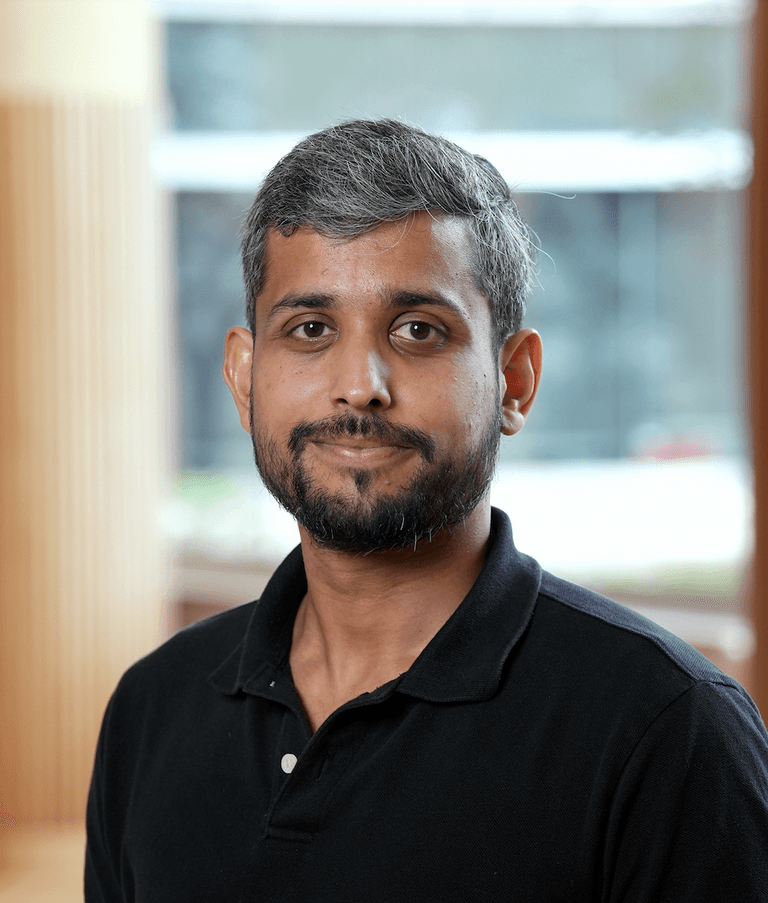Arvind Pillai
B.S., Molecular Biology, University of Texas, at Austin
Ph.D., Ecology and Evolution, University of Chicago
Assistant Investigator
Stowers Institute for Medical Research

Understanding how evolution navigated complexity not only reveals our biological past—it gives us the tools to shape the future of precision medicine.
Arvind's Profile
Research Areas
Evolutionary Biology, Molecular and Cell Biology, Biochemistry, Synthetic Biology
Arvind Pillai, Ph.D., is a biochemist and evolutionary biologist who will join the Stowers Institute in Fall 2025 as an Assistant Investigator. His research explores how new protein structures originate during evolution and how those principles can be harnessed to design future therapeutics.
Pillai earned his Ph.D. from the University of Chicago and most recently completed postdoctoral research in the lab of 2024 Nobel Laureate David Baker, Ph.D., at the University of Washington and the Institute for Protein Design. His work combines deep evolutionary biology with advanced protein biochemistry and artificial intelligence to investigate how complex protein folds arise—and how to design new ones for molecular sensing, disease diagnostics, or targeted drug delivery.
During his doctoral work, Pillai focused on reconstructing the evolutionary history of hemoglobin, the oxygen-carrying protein in red blood cells, using ancestral sequence reconstruction. This research revealed a step-by-step path by which complex molecular machines can evolve from simpler ancestors. His broader focus now includes understanding how nature builds order from the chaos of trillions of possible amino acid combinations.
“The most profound questions in biology are about how order and complexity come from randomness,” said Pillai. “Proteins are astonishing molecular machines, and by tracing their evolution, we can learn how to build new ones that meet today’s medical needs.”
At the Stowers Institute, the Pillai Lab will work at the intersection of protein evolution and design. His long-term goal is to build molecular tools—such as programmable sensors or therapeutic delivery systems—that could one day help detect and treat conditions like cancer or Alzheimer’s disease. He also plans to mentor a collaborative and multidisciplinary team of scientists passionate about tackling biology’s biggest mysteries.
